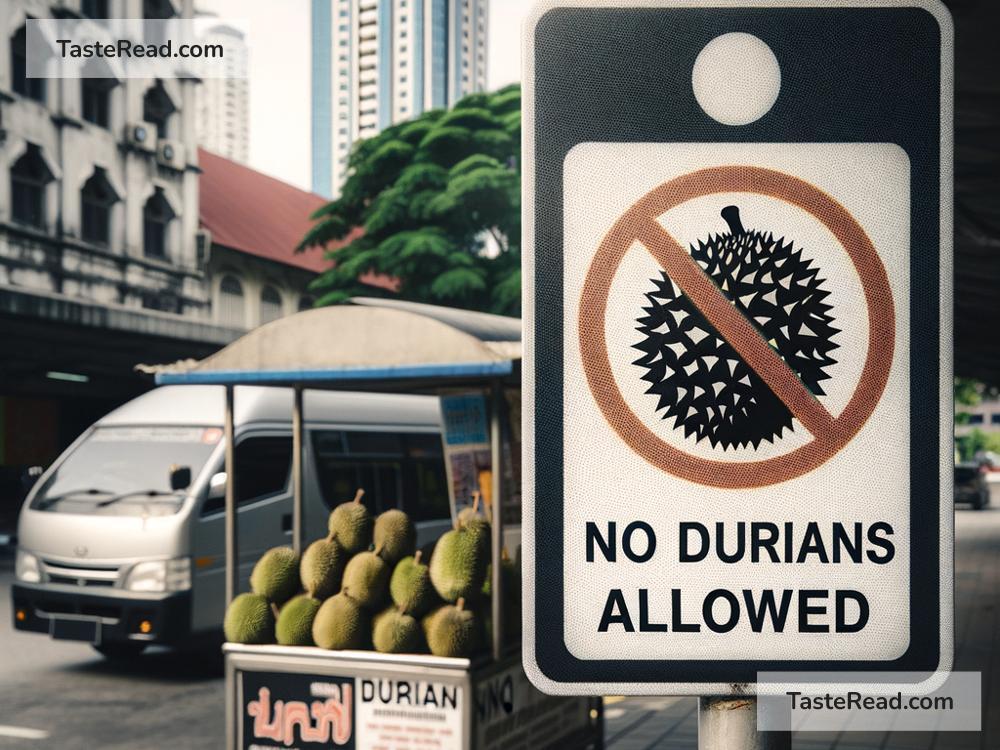Why Durian Is Banned in Some Public Places
Durian is a tropical fruit known as the “king of fruits” in Southeast Asia. People love it for its creamy texture and unique taste. Many say it’s one of the best-tasting fruits in the world. However, not everyone is a fan, especially when it comes to its smell. In fact, durian is so infamous for its strong odor that it’s banned in some public places, like hotels, airports, and public transportation. But why is this delicious fruit treated like it’s breaking the rules? Let’s dive into the reasons behind the ban and understand the story of this controversial fruit.
What Makes Durian So Special?
Durian is native to Southeast Asia and is a popular fruit in countries like Thailand, Malaysia, Indonesia, and the Philippines. It has a spiky shell, and its flesh is soft, creamy, and sweet, often compared to custard. Some people say it has a rich flavor similar to almonds or caramel. Others, however, will tell you that it’s an acquired taste.
The fruit is packed with nutrients like vitamins, fiber, and healthy fats. Many people even call it a “superfood” because it gives you energy and has health benefits. However, no matter how much you enjoy durian, there’s one thing about it that stands out more than its flavor: its smell.
The Smell That Divides Opinions
Durian is incredibly fragrant—or maybe “fragrant” isn’t the right word for everyone. Some people love the smell of durian, but many others think it’s downright unpleasant. Its odor is strong and lingers in the air long after you’ve finished eating. People often describe the smell as something rotten, like old socks, garbage, onions, or even sewage. It’s not just a light smell; it can overwhelm a room and even cling to clothes or furniture.
The chemistry behind durian’s smell is complex. Scientists have identified over 50 different compounds that create this unique odor. Some of these compounds resemble the smells of sulfur, roasted onions, and other pungent substances. Interestingly enough, the exact combination of these smells depends on the type of durian. There are several varieties, and some are less smelly than others. Still, for most people, even the mildest durian can be quite overpowering.
Why Is Durian Banned in Certain Places?
Because of its powerful smell, durian is often banned in public spaces where other people might be affected. Some common places where durian is prohibited include hotels, airplanes, buses, subways, and offices. Let’s look at why this ban exists.
-
Respecting Public Spaces
Public spaces are meant to be shared by everyone, and some individuals might find certain smells unpleasant or even offensive. The smell of durian can disrupt an otherwise comfortable environment, especially in enclosed areas like elevators, buses, or airplanes, where the smell has nowhere to escape. People might complain or feel uncomfortable, so many businesses and public spaces have decided that banning durian is a safer option. -
Safety Concerns
In enclosed spaces, durian’s strong smell can trigger headaches or nausea in some people. For those who already dislike the smell, it might make them sick or ruin their mood. In extreme cases, the smell can lead to misunderstandings. There have been instances where people mistakenly thought the smell of durian was a gas leak or chemical spill, leading to emergency evacuations. Clearly, the fruit’s odor can be a safety issue! -
Cultural Sensitivity and Etiquette
Durian holds a special place in Southeast Asian culture, but not everyone is familiar with it. Travelers from other parts of the world might find the smell shocking or unpleasant, creating uncomfortable situations. To avoid misunderstandings and maintain good etiquette, businesses often ask customers not to bring durian into shared areas. This prevents disputes and ensures everyone has a pleasant experience. -
Lingering Odor
Durian’s smell doesn’t disappear easily. If you eat durian in a shared space, the smell can linger for hours—sometimes even days. This is a big problem for places like hotels or taxis, where the odor might annoy the next guests or passengers. Cleaning up after durian can be time-consuming and costly, so many businesses prefer to ban it altogether.
Is Durian Really That Bad?
For fans of durian, the answer is no. In fact, many people feel the smell is part of the fruit’s charm. They embrace it as a unique aspect of the durian experience. However, for those who can’t stand the odor, it can ruin their day. Whether you love or hate the smell, one thing is clear: durian is a fruit that sparks debates and strong opinions.
Creative Ways to Enjoy Durian
If you’re a durian lover, you don’t have to give up your favorite fruit just because of the bans. Many people enjoy durian at home or in outdoor settings where the smell won’t bother others. You can also try durian-flavored snacks or desserts, like ice cream, cakes, or candies, which tend to be less smelly but still delicious.
Conclusion
Durian is one of the most iconic fruits in the world. Its taste and smell are both unforgettable—though not always in a good way! While it’s banned in some public places due to its strong odor, durian remains deeply loved by millions of people. Whether you’re a fan or not, it’s clear that durian has earned its place as a fruit with a bold personality.
So, the next time you’re in a place that bans durian, don’t feel offended; it’s simply a way to make public spaces comfortable for everyone. Instead, enjoy the fruit in private or share it with friends who love it just like you. After all, durian isn’t just a fruit—it’s an experience!


